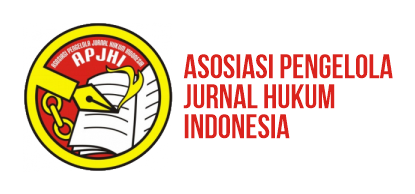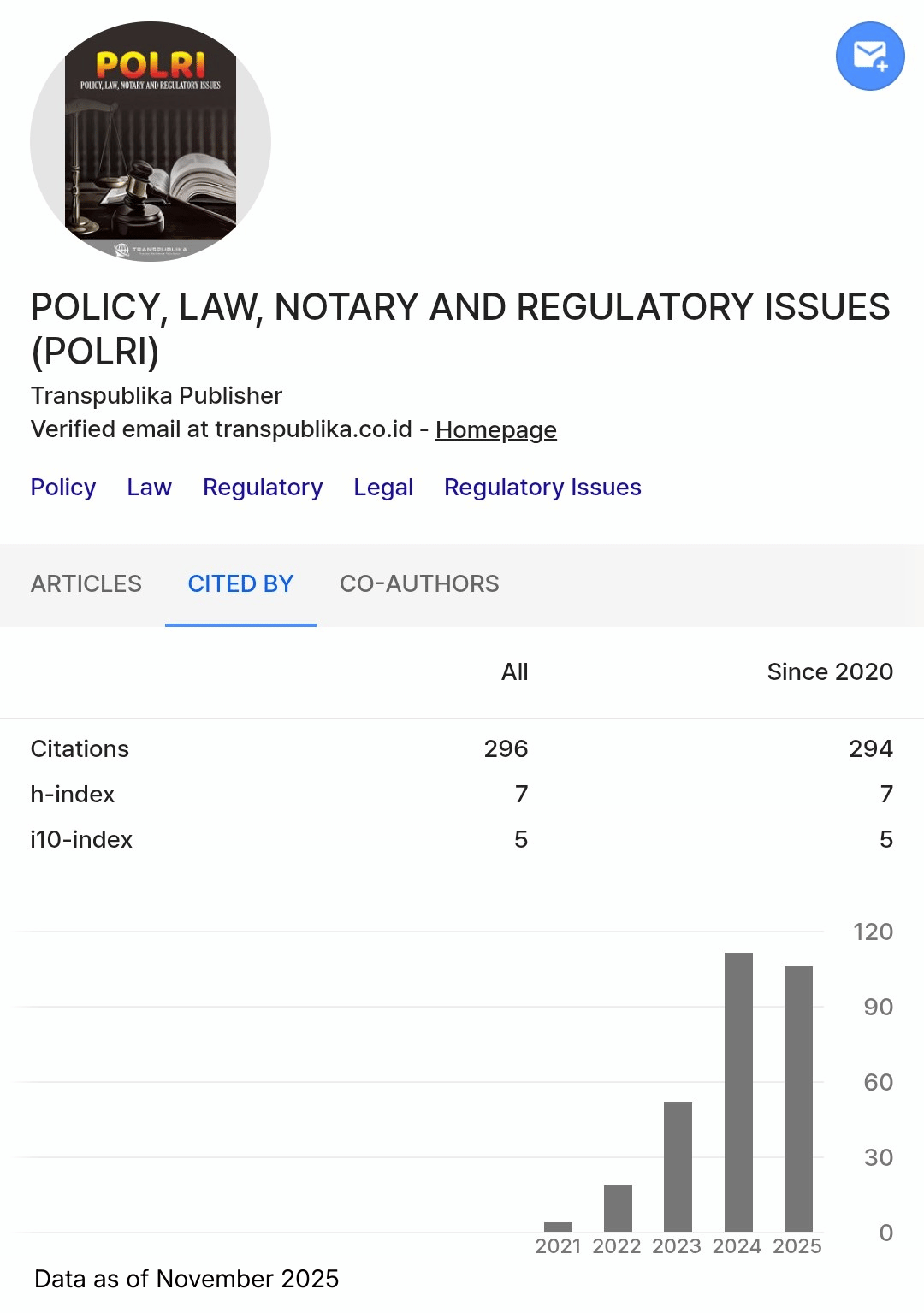Transformation of The TNI's Military Strategy in Facing Modern Conflicts with The Adaptive Model of Military Strategy in Navigating Technological Challenges and Geopolitical Shifts Effectively
Main Article Content
Arip Supriyadi*
Budi Setyoko
The transformation of military strategy in dealing with modern conflicts has become crucial amidst rapidly changing geopolitical dynamics and technological advances. This research aims to develop the Adaptive Model of Military Strategy to Overcome Technological Threats and Geopolitical Changes as the Transformation Of The TNI's Military Strategy in Facing Modern Conflicts. This research used descriptive qualitative research, with a literature review and interviews with the informants. The research locations include strategic institutions such as the Indonesian Ministry of Defense, the TNI Headquarters, and defense policy research institutes. The time of the research started from March to May 2025. This research found that the Adaptive Model of Military Strategy to Overcome Technological Threats and Geopolitical Changes can anticipate unexpected, uncertain, and ambiguous conditions in facing the modern conflict. On the other hand, this model can assist in the Design and Implementation of Defense Strategy Policies. This model has six pillars: Integration of Defense Technology and Artificial Intelligence, Adaptive Risk Management in Command and Control Systems, Multi-Domain Collaboration and Defense Diplomacy, VUCA-Responsive Based National Resilience, Assessment and Mapping of Global and Regional Geopolitical Dynamics, and identifying asymmetric Strategic Risks. Moreover, the conclusion of this research is the transformation of the TNI's military strategy in response to modern conflicts can be achieved through the implementation of the Adaptive Model of Military Strategy to Overcome Technological Threats and Geopolitical Changes.
Aamir, O. (2021). Warfare’s future in the coming decade: Technologies and Strategies. Available at SSRN 3854390.
Ahmed, S. K. (2024). The pillars of trustworthiness in qualitative research. Journal of Medicine, Surgery, and Public Health, 2, 100051.
Akter, S., Bandara, R., Hani, U., Wamba, S. F., Foropon, C., & Papadopoulos, T. (2019). Analytics-based decision-making for service systems: A qualitative study and agenda for future research. International Journal of Information Management, 48, 85–95.
Amil, A. C. (2024). Leadership Decision-Making in Vuca Bureaucracy: Glob-al Turbulence, Influence, Challenges, and Strategies. International Journal of Multidisci Plinary Research & Reviews, 3(03), 109–127.
Amini, A. (2023). Implementation Of Blended Learning In Improving Students Self Efficacy. Proceeding Of International Conference On Education, Society And Humanity, 1(1), 826–835.
Ampun, A. C. R. A., & Purba, A. O. (2021). Strategi pertahanan maritim indonesia sebagai poros maritim dunia. NUSANTARA: Jurnal Ilmu Pengetahuan Sosial, 8(3), 321–325.
Asenahabi, B. M. (2019). Basics of research design: A guide to selecting appropriate research design. International Journal of Contemporary Applied Researches, 6(5), 76–89.
Bazen, A., Barg, F. K., & Takeshita, J. (2021). Research techniques made simple: an introduction to qualitative research. Journal of Investigative Dermatology, 141(2), 241–247.
Bitzinger, R. A. (2021). Asian arms industries and impact on military capabilities. In Defence Industries in the 21st Century (pp. 115–131). Routledge.
Busetto, L., Wick, W., & Gumbinger, C. (2020). How to use and assess qualitative research methods. Neurological Research and Practice, 2(1), 14.
Dado, M., Spence, J. R., & Elliot, J. (2023). The case of contradictions: How prolonged engagement, reflexive journaling, and observations can contradict qualitative methods. International Journal of Qualitative Methods, 22, 16094069231189372.
Darumaya, B. A., Maarif, S., Toruan, T. S. L., & Swastanto, Y. (2023). Assesing Indonesia’s Cyber Capabilities: A New Paradigm of State Power. Journal of Law and Sustainable Development, 11(8), e1439–e1439.
Döner, E., & Efeoğlu, İ. E. (2023). Being Affected By VUCA Factors? Developing The “Perceived VUCA Exposure” Scale. GAB Akademi, 3(2), 28–53.
Fanani, A., Midhio, I. W., & Hendra, A. (2024). Tantangan Pertahanan Nasional Menuju Indonesia Emas 2045. TheJournalish: Social and Government, 5(4), 379–391.
Freedman, L. (2017). The future of war: a history. PublicAffairs.
GRoSU, R. (2024). An Academic Approach Of The Military Doctrine Transformation In The Context Of Asymmetrical Conflicts. Strategic Impact, 90(1), 23–50.
Hendra, Z., Musani, I., & Samiaji, R. (2021). Studi Kasus Perang Modern Antara Rusia Dengan Ukraina Tahun 2014 Di Tinjau Dari Aspek Strategi Dan Hubungan Internasional Serta Manfaatnya Bagi Tni AL. Jurnal Manajemen Pendidikan Dan Ilmu Sosial, 2(2), 730–746.
Khoa, B. T., Hung, B. P., & Hejsalem-Brahmi, M. (2023). Qualitative research in social sciences: data collection, data analysis and report writing. International Journal of Public Sector Performance Management, 12(1–2), 187–209.
Klar, S., & Leeper, T. J. (2019). Identities and intersectionality: a case for Purposive sampling in Survey‐Experimental research. Experimental Methods in Survey Research: Techniques That Combine Random Sampling with Random Assignment, 419–433.
Krpec, O., & Kříž, Z. (2025). Structural challenges in adapting to modern warfare: lessons from the Ukrainian War and the Czech defence industry. Defense & Security Analysis, 1–28.
Maulana, A., & Sy, S. (2024). Cooperation Management System Model Kerjasama Sipil-Militer dalam Pengelolaan Sumber Daya Nasional. MEGA PRESS NUSANTARA.
Metz, S. (2022). Strategy and the revolution in military affairs: from theory to policy. Diane Publishing.
Mezmir, E. A. (2020). Qualitative data analysis: An overview of data reduction, data display, and interpretation. Research on Humanities and Social Sciences, 10(21), 15–27.
Pahlawati, E., Norman, E., Supriyatna, R. K., & Hermaliana, M. (2022). Dampak Stres Kerja dan Disiplin Kerja terhadap Kinerja Pegawai RSUD Kota Bogor pada Masa Pandemi Covid 19. Reslaj: Religion Education Social Laa Roiba Journal, 4(1), 101–119.
Putro, T. W. A. (2024). Implementasi Big Data dan Artificial Intelligence Untuk Meningkatkan Kemampuan Intelijen TNI. Ranah Research: Journal of Multidisciplinary Research and Development, 6(6), 2864–2872.
Rahayu, R. S., Arvianti, E. Y., & Sasmito, C. (2024). Dampak Implementasi Pemberian Tambahan Penghasilan Pegawai (TPP) Terhadap Kinerja Aparatur Sipil Negara di Dinas Pertanian dan Ketahanan Pangan Kota Batu. Jurnal Administrasi Publik, 20(2), 227–248.
Safaruddin, S. (2022). Implementasi Kebijakan Publik Di Era Disrupsi (Studi Implementasi Kebijakan Pendidikan Dasar Di Kota Makassar)= The Implementation of Public Policy in Disruption Era (A Study on Implementation of Elementary Education Policy in Makassar City). Universitas Hasanuddin.
Sarjito, A. (2024). Enhancing National Security: Strategic Policy Development in Defense Management. Jurnal Pelita Nusantara, 2(1), 56–68.
Schafer, R., & Phillippi, J. C. (2025). Updating and Advancing Member-Checking Methods: Use of Video and Asynchronous Technology to Optimize Participant Engagement. International Journal of Qualitative Methods, 24, 16094069251315396.
Schreier, M. (2018). Sampling and generalization. The SAGE Handbook of Qualitative Data Collection, 84–97.
Scianna, B. M. (2019). Stuck in the past? British views on the Spanish army’s effectiveness and military culture, 1946–1983. War & Society, 38(1), 41–56.
Sileyew, K. J. (2019). Research design and methodology (Vol. 7). Cyberspace London.
Singer, P. W. (2009). Wired for war: The robotics revolution and conflict in the 21st century. Penguin.
Storey, I. (2013). Singapore and the rise of China: Perceptions and policy. In China Threat: Perceptions Myths (pp. 205–226). Routledge.
Supriyadi, A., Moeljadi, M., Kusumaningrum, A., & Susilo, S. (2024). The Concept of Victory in Marine Corps Defense Planning. Wacana Journal of Social and Humanity Studies, 27(1), 18–25.
Suspurwanto, J. (2020). Kepemimpinan Strategis Jenderal Sudirman Dalam Pengabdiannya Sebagai Prajurit Tentara Nasional Indonesia. Strategi Perang Semesta, 6(1).
Suzen, H. (2024). Understanding the changing character of political warfare which employs disruptive technologies in contemporary great power competition: a comparative study of Russian and the Western digitalized political warfare in Ukraine. University of Antwerp.
Swain, J., & King, B. (2022). Using informal conversations in qualitative research. International Journal of Qualitative Methods, 21, 16094069221085056.
Tisdell, E. J., Merriam, S. B., & Stuckey-Peyrot, H. L. (2025). Qualitative research: A guide to design and implementation. John Wiley & Sons.
Vaughn, B. (2007). US Strategic and Defense Relationships in the Asia-Pacific Region. Congressional Research Service Washington DC.















